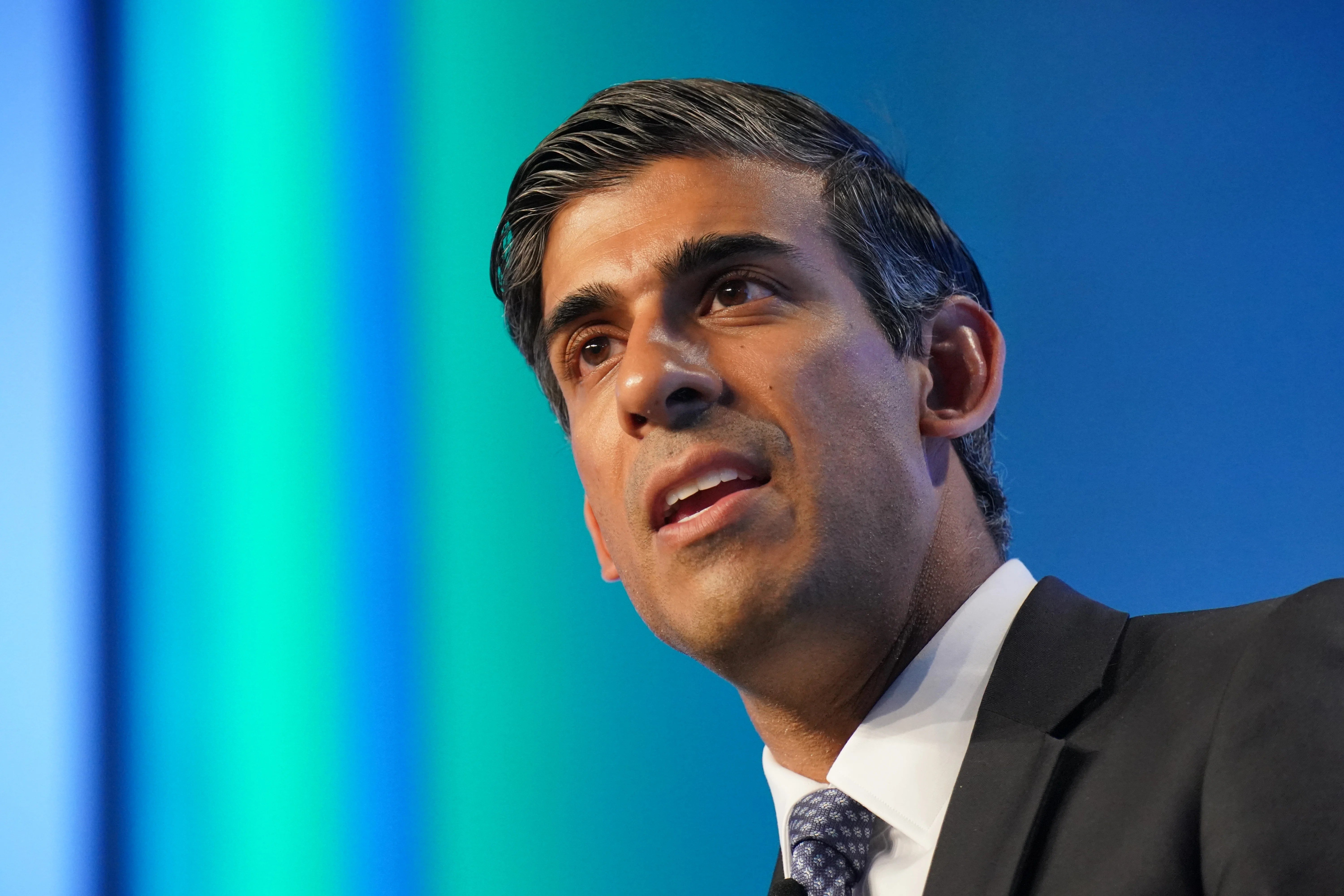What will Rishi Sunak’s premiership mean for UK tech policy?
by Pia Doering on 25 Oct 2022
Once again, the UK has a new Prime Minister. What does this further leadership change mean for the UK’s tech ecosystem and regulatory environment? In this blog, Inline Policy illuminates where a Rishi Sunak premiership could land on issues such as digital competition, data protection, online safety, net zero, artificial intelligence, innovation, and foreign relations.
Only two months after losing the race to be leader of the Conservative Party to Liz Truss, Rishi Sunak is the new UK Prime Minister after a turbulent and destabilising period. Whilst Ms Truss’ stay in office has been too short to make an imprint on UK tech policy – other than spooking investors – Mr Sunak could have more than two years until the next General Election, if he manages to stave off any challenges to his leadership. First as Chancellor and then as leadership contender during the summer of 2022, Mr Sunak frequently voiced his commitment to growing the UK’s tech sector, slashing red tape, and encouraging investment. So, what could his premiership mean for UK tech policy?
Digital competition
During this summer’s leadership contest, Mr Sunak promised to bring forward the Digital Markets, Competition and Consumer Bill to be tabled in autumn 2022 if he were to become Prime Minister. He stated that he supports “the growth of digital industries, but believe we will only achieve a thriving digital economy in the UK with properly functioning markets.” Whilst the Johnson administration signalled its commitment to developing a digital competition regime in the Queen’s Speech in May 2022, it failed to set out a timetable for the bill, likely pushing it into the next legislative period. In comparison, Mr Sunak’s timeline would have expedited the process. Moreover, Mr Sunak pledged to put the Digital Markets Unit on statutory footing to give it “real teeth”. This suggests that the new Prime Minister is aware that the UK runs the risk of falling behind other regulatory markets in the absence of an effective digital competition framework, especially given that the EU recently passed its Digital Markets Act (DMA).
Data protection
Rishi Sunak has long opposed retaining the General Data Protection Regulation (GDPR). At the launch of tech leadership networking platform Treasury Connect in October 2021, he suggested that the GDPR was not necessary to achieve data adequacy, citing regulatory regimes in Japan, Switzerland and Canada (all recognised as data adequate by the EU). Data adequacy is important because if the EU does not recognise any future data protection regime installed by the UK as offering similar protections, the flow of data between the UK and the EU could become severely restricted. This would have serious consequences for businesses operating across both markets. Back then, Mr Sunak said the government wanted to move away from a “tick-box approach” to focusing on “substance” by simplifying certain provisions to enable innovation. In the same line, he promised to ‘remove the burdens of GDPR’ and create ‘the most dynamic data protection regime in the world’ during this summer’s leadership race.
Online safety
Mr Sunak supports the Online Safety Bill and its aims in general. But, he has echoed concerns voiced by MPs (including a large number of Conservatives), free speech groups, and tech companies regarding the bill’s focus on tackling ‘legal but harmful’ content. Some fear that the bill incentivises censorship – for example, Antony Walker, CEO of techUK, said until businesses have “clarity on definitions of legal but harmful, there is a risk that companies will feel the safest route to compliance will be to simply remove any lawful ‘grey area’ content.” Accordingly, Mr Sunak expressed a need to revisit the bill and to examine “whether it strays into the territory of free speech.” Under Mr Sunak, we would likely see the Online Safety Bill pass, but it is unclear in what form, or when: Just last week, current Culture Secretary Michelle Donelan MP told the House of Commons that the Bill would be brought back "imminently", but it is unclear whether it will remain at the top of the Department's agenda following the leadership change and a likely Cabinet reshuffle.
Net Zero
In his parliamentary career, Rishi Sunak has rarely addressed climate change. Nonetheless, during the leadership race of summer 2022, Mr Sunak confirmed his allegiance to the Net Zero 2050 target should he become Prime Minister, but emphasised it would have to be reached “in a measured way” so as to not disadvantage the UK’s competitive position. He has moreover signed up to the 'Conservative environment pledge', which inter alia promises 'turbocharging clean growth through backing the technologies of the future', rolling out electric vehicle charging points across the UK, and ‘unleashing clean British energy.’ Whilst we can reasonably expect Mr Sunak to support research and investment into green technologies, it seems unlikely that net zero goals will be at the top of his list as Prime Minister.
Artificial Intelligence (AI)
Mr Sunak is enthusiastic about artificial intelligence. At the Conservative Party Conference in 2021, Mr Sunak suggested that “AI has the potential to transform whole economies and societies”, adding that if AI could achieve just “the average productivity increase” brought by steam engines, computers, and the internet upon their invention, “that would be worth around £200 billion a year to our economy.” In summer 2022, he said that he would encourage the adoption of AI in schools to reduce teachers’ workloads and “inspire pupils”. Given the sheer amount of AI-based technology products that already exist, and the varied potential future use cases of this technology, Mr Sunak’s enthusiasm is certainly welcome in the tech community. However, he has not addressed the significant ethical implications inherent in many AI applications. This means it remains uncertain how his government would deal with them if it developed AI legislation similar to the EU’s AI Act.
Access to talent
When Rishi Sunak was Chancellor, the government made several attempts to shake up the visa system and make it easier for skilled workers to come to the UK. This included the introduction of the ‘Global Talent Visa’ in 2020 and the launch of a new point-based visa route. This was designed to attract top talent by targeting graduates from highly ranked science universities across the globe. During this summer’s leadership contest, he said he wanted to complete the work on skilled immigration he had begun in his chancellorship and attract more skilled workers to the UK. Mr Sunak has admitted that access to talent is a “limiting factor” for UK-based companies trying to scale up and pledged to turn the country into a “beacon of talent for the best and brightest in the world.” He emphasised that opportunities should be available to young people not only through university but also through apprenticeships and “other short courses”.
Research & Innovation
Mr Sunak has made it clear that he believes that science and technology are the key to making the UK economy fit for the future. During his leadership bid this summer, Mr Sunak pledged to make the UK a “science and technology superpower”, putting science and innovation “at the heart of my government.” To this end, Mr Sunak promised he would “turbocharge clinical innovation” to accelerate the development of new medicines and “ensure that we have access to the very best talent available.” Substantially, Mr Sunak said he would increase annual public spending on research and development to £20 billion by 2024/25. He also referenced his commitments to research spending as Chancellor, a role in which he “invested £1.4bn in the Global Britain Investment Fund, to support investment in life sciences, offshore wind and automotive manufacturing”.
Foreign Relations (EU, China)
Rishi Sunak, who campaigned for the UK to leave the EU ahead of the 2016 Brexit referendum, has been an outspoken critic of what he perceives to be overly complex and stifling EU regulations. When running for Conservative Party Leader earlier this year, he pledged to create a “Brexit delivery unit” that would either scrap or reform all EU laws that have remained in the statute book until now by the next (scheduled) General Election in 2025. Although Mr Sunak is a proponent of foreign investment and free trade generally, he has criticised the UK’s trade deals with New Zealand and Australia (which were negotiated under his predecessor Liz Truss during her time as Secretary for International Trade) for being “one-sided”, suggesting that the UK should not be in a rush to sign trade deals. On China, Mr Sunak has taken a relatively hard line, saying its "nefarious activities and ambitions" must be countered unilaterally and through cooperation in international organisations such as NATO. Mr Sunak has promised to address Chinese industrial espionage and to scrutinise more closely the acquisition of British firms by Chinese actors, especially in strategically important technology sectors.
Conclusion
Rishi Sunak is known as a believer in the potential of technology to advance economic growth and address societal challenges. He made his support for the UK tech industry known often during his time as Chancellor and reiterated his commitments during the Conservative Party’s leadership election over the summer of 2022. Following the economic turmoil caused by the Truss administration, and the sometimes-antagonistic stance of the Johnson administration towards the markets, Mr Sunak commands a comparably high level of trust from economic actors, which could improve the UK’s macroeconomic outlook and reassure tech investors. However, how much Mr Sunak will be able to achieve as a Prime Minister will depend on the stability of his administration. He inherits high inflation, geo-political uncertainty, an energy crisis, and a party whose rallying around him for this occasion cannot conceal its deepening fragmentation. Mr Sunak’s premiership could be a good time for the UK tech ecosystem – but it will not be smooth sailing.
Topics: UK politics, Competition policy, Antitrust, Big Tech, Online Platforms, Regulation, Technology






Comments